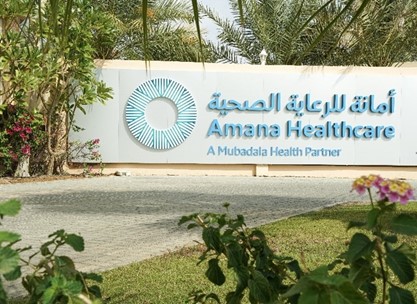Today the Emirati is close to making a full recovery and is back home after undergoing an intensive rehabilitation programme at Amana Healthcare hospital in Al Ain. “I am very happy. Now he is walking and talking. It is unbelievable,” said Yahya, 39, who took a leave of absence from his job in the military to keep a daily vigil by Mohammed’s bedside. He said he could not imagine life without his brother. “We are very close. We are like the nail and the finger,” said Yahya, who feared for his sibling’s life after the stroke.
“His condition was really bad. But after the first two to three weeks in Amana, I had hope that he would get better.” Mohammed said he felt pain in the right side of his body as he lay in bed moments before the stroke occurred. “That night I woke up and felt something was abnormal and I called for my wife,” he said. His next memory was of waking up at Amana. “When I woke up I wondered why I was here and why I was in this position,” said Mohammed. “At the beginning I was very depressed, thinking I could not walk again. But as I began to improve I felt there was some hope there and I wanted to go back to my wife and my daughters.”
It was this perseverance that aided his miraculous recovery, the doctors said. Taking his first bite of food and walking his first steps marked two post-stroke milestones. “I cannot explain how happy I was. I never expected to reach this point,” he said, His wife of 17 years, Bakhita, smiles as she watches her husband chatting and smiling while gripping a glass of orange juice. These everyday actions are something she only dared hope for four months ago. “I have never been so stressed before,” she said. “Now … I am very happy.”
Mohammed suffered a stroke after failing to take his medication for high blood pressure. He was admitted to a hospital in Al Ain, a period he cannot recall. Five weeks later he was admitted to Amana. “They certainly felt he would not recover,” said Magi Livadaris, VP of CLinical Operations at Amana Healthcare. At that time, Mohammed could not breathe without a ventilator, could not eat or move independently and had no means of communication except for limited facial expressions. “There is a look in a patient’s eyes that you see and he was scared. So you knew he had enough cognitive function to realise I was not happy,” said Ms Livadaris.
The hospital closely monitored his medical problems, including hypertension and heart disease. To be sure, Mohammed has made a remarkable recovery. Less than two months after his family was told that he might never leave hospital, he is now able to walk with a cane, breathe independently, talk normally and is back home with his family. Mohammed has since regained about three quarters of his motor-neurone function.
“It was recoveries such as Mohammed’s that made the work at the hospital worthwhile”, said Ms Livadaris.





